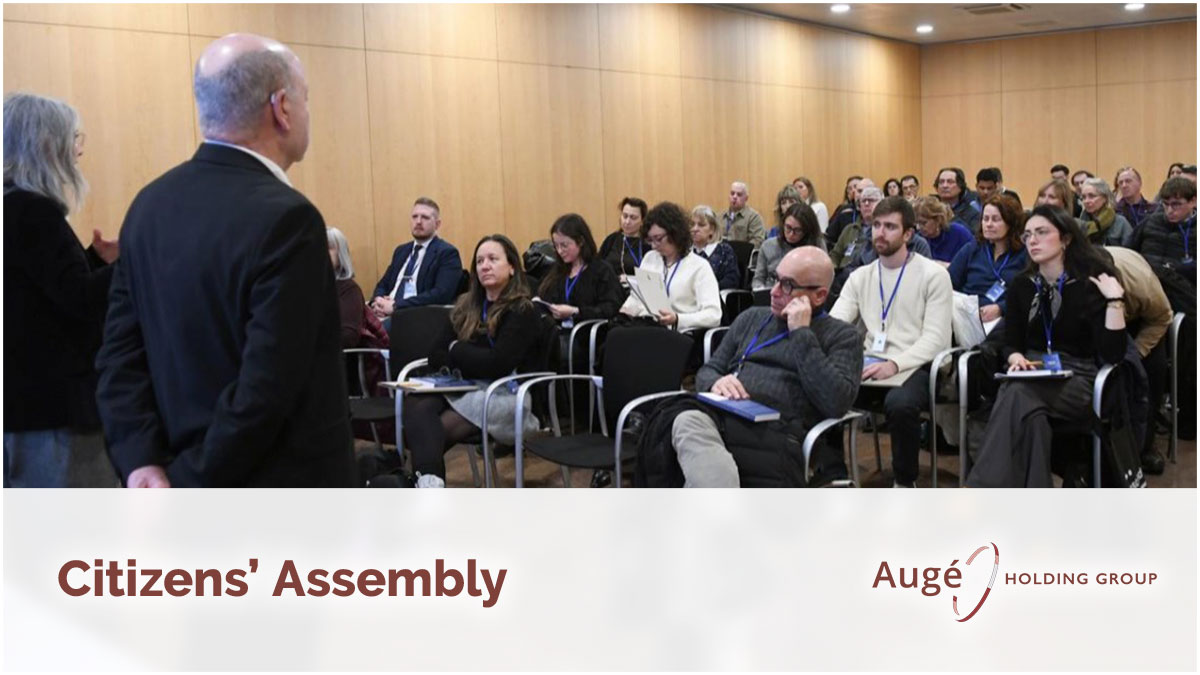Digital transformation has redefined the foundations of the economy and legal transactions. In this regard, e-commerce, digital services, and virtual environments have not only changed how we purchase goods and services but also how parties establish legal relationships. In this new context, electronic contracts have become everyday tools for both business transactions and agreements between consumers and service providers.
In Andorra, where economic digitalization is a strategic priority, electronic contracting is fully integrated into the legal system. However, legitimate questions arise: Do electronic contracts have the same legal validity as those signed using traditional methods? What guarantees does Andorran law offer to parties contracting digitally? How is the international dimension of electronic contracts regulated in Andorra?
Table of contents
Toggle1. Legal Validity of Electronic Contracts in Andorra
The main legal framework in this area is provided by Law 20/2014, of October 16, regulating electronic contracting and operators conducting their economic activity in a digital environment, currently in force without any subsequent amendments.
Specifically, Article 21.3 of the law states:
“Contracts concluded through electronic communications produce all the effects foreseen by the legal system, provided that consent and the other legally required elements for their validity are present.”
This means that in Andorra, an electronic contract cannot be dismissed simply because it was concluded digitally. The principle of equivalence between electronic and traditional contracts is central in Andorran legislation and guarantees legal certainty for online transactions.
Moreover, consent—an essential element in any contract—must be given freely and knowingly, without defects that might invalidate it, as required by general obligation law.
The law reinforces this principle by requiring providers to give clear, understandable, and accessible information before the contract is finalized (Articles 17 and following).
2. The Role of Law 35/2014 and Electronic Trust Services
Complementarily, Law 35/2014, of November 27, on certification and electronic trust, regulates trust services that ensure the authenticity and integrity of electronic contracts.
The law establishes the legal framework for:
- Electronic signatures
- Electronic seals
- Certification of authenticity of electronic documents
- Secure document preservation systems
Importantly, it recognizes the functional equivalence of qualified electronic signatures with handwritten signatures, giving electronic contracts full evidentiary value before Andorran courts.
Also worth noting is Law 9/2021, of April 29, which amends Law 35/2014, renaming it and modifying Articles 3, 21, 26, and 27, which cover requirements for qualified electronic delivery services and qualified trust service providers.
Additionally, six new articles have been added (Articles 5 bis, 7 bis, 21 bis, 21 ter, 21 quater, and 21 quinquies), covering, among other things, the legal effects of electronic identification for both individuals and legal entities, and the requirements for qualified electronic attribute certificates.
It now acquires the name of “Law 35/2014, of November 27, on electronic certification and trust”.
3. Requirements and Guarantees in Electronic Contracting
To ensure that an electronic contract is valid and enforceable in Andorra, several essential requirements must be met to promote transparency and protect the parties:
- Pre-contractual information: The provider must offer the consumer clear data on contract terms, the formalization process, how to correct errors, and how the contract will be stored (Art. 17, Law 20/2014).
- Informed consent: It must be express, free, and conscious. The electronic medium must not limit the party’s ability to understand the nature of the obligations.
- Access, storage, and archiving: The provider must store the contract in a format that allows complete consultation for the legally required period.
- Identification and authenticity: The use of electronic signatures and trust services ensures proper identification of the parties and the integrity of the document.
4. Current Landscape and Global Trends in Electronic Contracting
Andorra is undergoing active digital transformation, driven by initiatives like the Digital Transformation Program of Andorra (PdTDA), which promotes the use of technological solutions by businesses and public administration. This is evident in the increasing use of certified electronic signature platforms (such as AndorraID and systems approved by ActuaTech) by local businesses, making digital contracts a widespread practice.
Furthermore, a strategic agreement was recently signed between Andorra and Amazon Web Services (AWS) to accelerate the country’s digital transformation. This agreement provides Andorran companies, especially SMEs, with access to AWS tools and services to enhance their digital presence, develop e-commerce solutions, implement AI, and strengthen cybersecurity.
This constitutes the Principality’s “digital transformation action plan” and is a program launched in 2020 and reviewed every three years to ensure that the objectives set by the 2030 digital strategy are achieved.
Globally, electronic contracting is growing exponentially, driven by online commerce, remote work, and the development of smart contracts based on blockchain. International organizations like the OECD and UNCITRAL are actively exploring the legal challenges these instruments pose, particularly regarding self-execution and the absence of human intermediaries.
International organizations like the OECD and UNCITRAL are actively exploring the legal challenges these instruments pose, particularly regarding self-execution and the absence of human intermediaries.
5. Electronic Contracting and Private International Law
The cross-border dimension of electronic contracts is especially relevant in a borderless digital environment. Article 33 of Law 20/2014 provides that:
“Cross-border electronic contracting carried out by a provider established in Andorra is governed by Andorran legislation, without prejudice to the provisions of Andorran regulations regarding the applicable law to contracts and the applicable international legal framework.”
Thus, contracts concluded by providers based in Andorra are, in principle, subject to Andorran law, except where:
- Private international law rules apply (e.g., determining applicable law in contracts involving foreign consumers or multiple jurisdictions),
- International treaties ratified by Andorra prevail.
This approach ensures clarity and legal certainty for cross-border e-contracts, while respecting international rules on applicable law and consumer protection.
6. International Perspective
It’s useful to compare Andorran legislation with EU regulations and the frameworks of neighboring countries European Union: Regulation (EU) No. 910/2014 (eIDAS) facilitates the interoperability and mutual recognition of electronic signatures and trust services across Member States. It gives qualified electronic signatures the same legal effect as handwritten signatures and establishes the requirements for advanced and qualified e-signatures.
The E-Commerce Directive (Directive 2000/31/EC) is also relevant for regulating pre-contractual obligations and intermediary liability.
Based on this European regulation, we consider the legislative specificities of the following countries:
- Spain: The Law 34/2002, on Information Society Services and E-Commerce, recognizes the validity of electronic contracts and ensures their legal effect. Law 6/2020 also regulates electronic trust services. Additionally, Article 1255 of the Spanish Civil Code, which upholds freedom of contract, has been interpreted to support the validity of electronic agreements.
- France: Articles 1366 and following of the French Civil Code confirm that electronic documents have the same evidentiary value as paper documents, provided their integrity and authorship can be verified.
- Portugal: The Ministry of Economy and Digital Transition launched an Action Plan for Digital Transition in April 2020, promoting digital tools like electronic signatures. Only the qualified electronic signature is considered legally equivalent to a handwritten signature. Thus, when a handwritten signature is legally required, a qualified electronic signature must be used to meet the requirement.
7. Looking Ahead: Toward Smarter, More Personalized E-Contracts
Electronic contracting, as we know it today, will continue to evolve alongside technology. Smart contracts, built on blockchain, already raise new challenges: self-executing agreements, pre-programmed conditions, and transactions without human intermediaries.
This leads to key questions: Will Andorran legislation need to adapt to regulate not only traditional electronic contracts but also these new digital instruments? Will we need more personalized digital contracts to ensure truly informed consent based on user profiles?
Ultimately, what is certain is that electronic contracts are fully valid under current Andorran law. The key lies in fulfilling the essential requirements of any contract: valid consent, lawful object, and legitimate cause. The digital format is not an obstacle, but rather a fully recognized and secure channel for legal transactions in the Principality.
Additionally, the Andorran legal framework clearly anticipates the application of local law to international e-contracting, while respecting international private law and treaty obligations. This ensures strong legal certainty for both Andorran operators and their foreign counterparts, in an increasingly digital and global environment.





